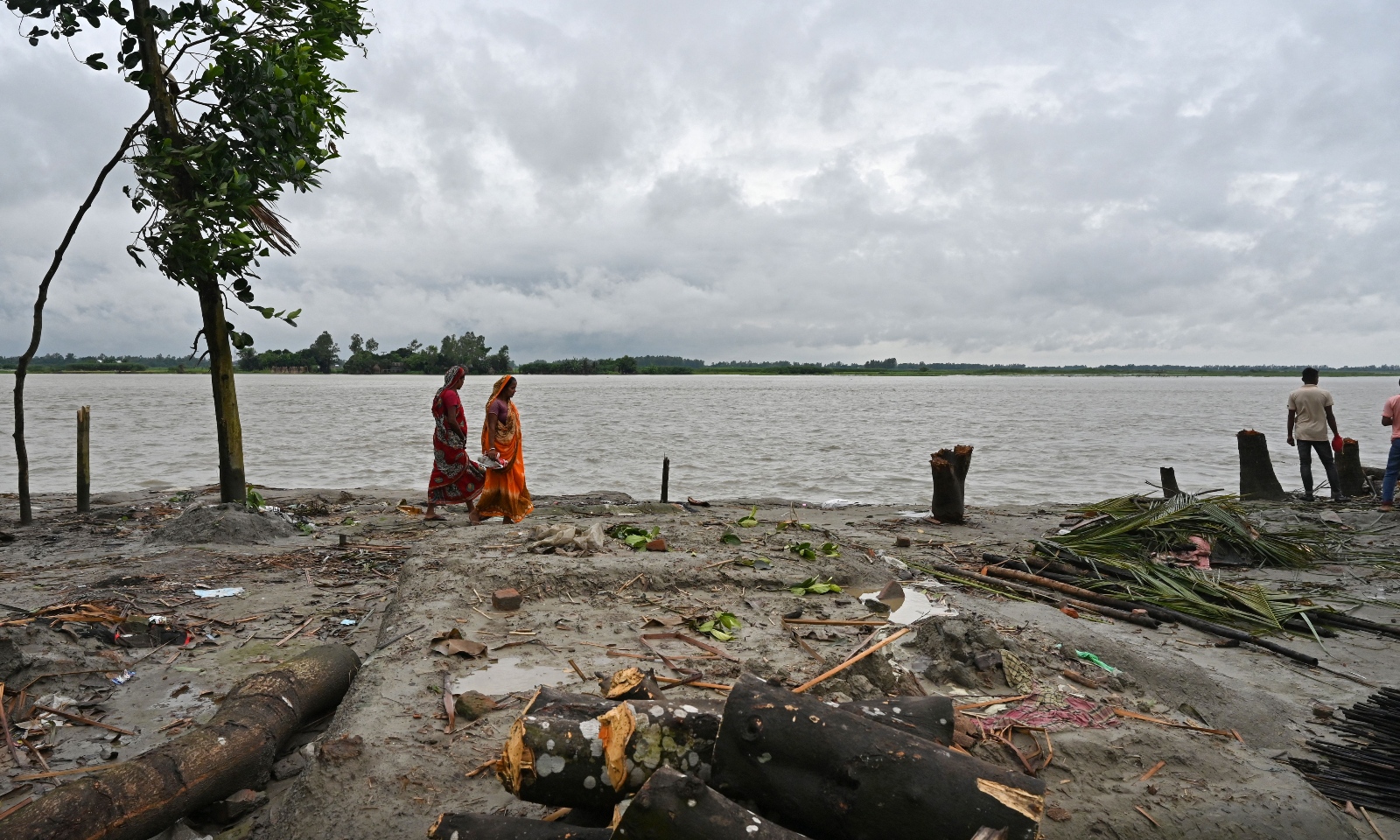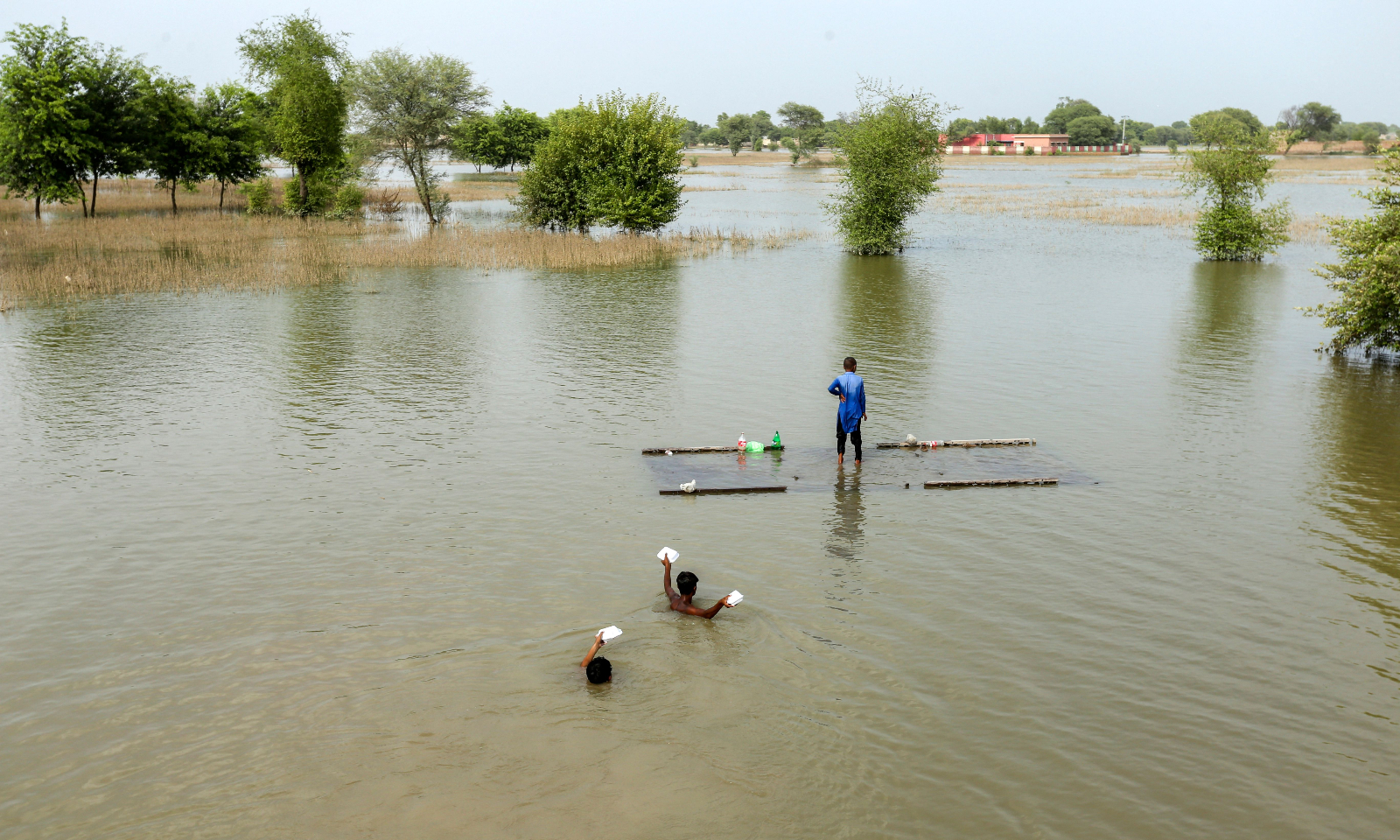Climate change is triggering a global health crisis that may approach the death toll of some of history’s deadliest plagues. Unlike the 1918 flu epidemic or the COVID-19 pandemic, which were caused by the widespread outbreak of one type of bacteria or virus, climate change-fueled illness is a Hydra-headed challenge that erodes human health on multiple distinct fronts. Efforts are underway to tally this risk, and a growing body of research indicates that climate-related health threats, such as cardiovascular, diarrheal, and vector-borne diseases, have already killed millions of people — a count that will grow steeper as warming accelerates.
A recent report from the World Economic Forum, a non-governmental organization that promotes public-private partnership on global issues, and Oliver Wyman, a consulting firm, projects that rising temperatures will “place immense strain on global healthcare systems” in the coming years. Climate change will cause 14.5 million additional deaths by 2050, the report says, and spur $12.5 trillion in economic losses. Healthcare systems — hospitals, emergency rooms, doctors, and nurses — will also have to provide an extra $1.1 trillion worth of treatment by mid-century because of climate change.
These challenges will be felt most acutely in the Global South, where healthcare resources are already limited and governments lack the capacity to respond to cascading climate impacts such as worsening floods, heat waves, and storms. According to the report, central Africa and southern Asia are two regions that are particularly vulnerable to the overlap of intensifying climate health threats and limited resources.
“Climate change is transforming the landscape of morbidity and mortality,” the report says. “The most vulnerable populations, including women, youth, elderly, lower-income groups, and hard-to-reach communities, will be the most affected by climate-related consequences.”

In total, the report identified six weather events most likely to trigger negative health outcomes: floods, droughts, wildfires, sea-level rise, tropical storms, and heat waves. The authors examined the direct and indirect effects of each of these events.
The burden of indirect impacts far outweighed the direct effects. For example, floods can trigger landslides that injure and kill people during or directly after a flood occurs. But the longer-term consequences of flooding kill more people. Floods eat away at coastlines, damage infrastructure, and kill crops, which in turn contribute to the expansion of mosquito habitat, increase moisture and humidity in the air, and fuel food insecurity. Infectious diseases, respiratory illnesses, malnutrition, and mental health issues follow. The report predicts that the greatest health consequences of extreme rainfall and flooding in central Africa and Southeast Asia, two of the regions that face the worst effects of climate-driven flooding, will be malaria and post-traumatic stress disorder, respectively. The economic impact of these illnesses and other flood-related health issues will top $1.6 trillion.
The report found that floods, which pose the highest risk of climate-related mortality, will kill an estimated 8.5 million additional people globally by mid-century because of climate change. Droughts linked to extreme heat, the second-highest driver of climate mortality, will lead to more than 3 million extra deaths. The report estimates that 500 million additional people could be exposed to vector-borne diseases such as malaria, dengue fever, and Zika virus by 2050, many of them in regions that don’t typically have to contend with those illnesses today, such as Europe and the United States. The authors made these projections using a middle-of-the-road climate scenario, in which governments continue to make slow, halting progress toward achieving international climate goals. If fossil fuel use continues unabated or ramps up further through 2050, the health consequences of climate change will be much more severe, and millions more people will die.
Daniel R. Brooks, a professor of evolutionary biology at the University of Toronto and author of a book on climate change and emerging diseases, told Grist that it’s encouraging that business-oriented institutions like the World Economic Forum are beginning to tally the direct and longer-term health effects of climate change. But he noted that more work needs to be done to capture the full scope of the climate change-related public health burden. “These staggering numbers are actually conservative,” said Brooks, who was not involved in the research.
Large epidemiological blind spots cover much of Africa, Southeast Asia, and other parts of the world that have historically lacked the resources to collect and publish health and climate data. That means studies that use existing data to make their projections, as this report did, necessarily miss a big part of the picture. “It is imperative to recognize that the true toll of storms may be underestimated because of the lack of comprehensive data capturing indirect effects,” the report acknowledged in a section dedicated to the health effects of tropical storms. “This is particularly true for low-income and other vulnerable populations.”

Developed countries are already armed with much of the information and many of the tools required to avert the mass casualties the report projects. The authors outlined a multi-pronged approach these countries can take. The first step is obvious and essential: Reduce greenhouse gas emissions as quickly as possible. Every tenth of a degree of warming dodged corresponds to hundreds of thousands of lives saved around the world. “The holy grail will lie in prevention,” said Rolf Fricker, a partner at Oliver Wyman and a coauthor of the report. “This is the most important thing.”
Governments must also treat climate change like a public health crisis, and dedicate resources to establishing climate and health offices that will guide policy and divert resources to where they are needed. The United States is an example of a country that began such a process in 2021 by establishing an Office of Climate Change and Health Equity, which is waiting on congressional funding in order to begin the work of assessing and responding to the risks climate change poses to Americans’ health. The U.S. is something of an outlier in this respect. For example, Fricker, who lives in Germany, said his government hasn’t even begun to quantify the health risks of climate change, despite having to contend with expansive flooding issues and intensifying heat waves in recent years. These climate impacts put hospitals, clinics, and other parts of Germany’s healthcare system at risk.
In developing countries, where the resources to establish and fund such operations do not exist, wealthier governments, foundations, and private companies must step in to fill the void, Fricker said. The Bill and Melinda Gates Foundation has dedicated tens of millions of dollars to this effort, and other foundations are doing similar work, but the scale of investment needs to increase exponentially. A tiny fraction of the already limited international climate adaptation funding pledged to the Global South by wealthy nations is dedicated to health projects. More funding would allow at-risk countries to make their hospitals and clinics more resilient to climate change, stockpile medicines and vaccines that can protect people from the projected rise in vector-borne and diarrheal diseases, collect data on how climate change is affecting the public, and educate communities about the dangers at hand and ahead.
Last week, Barbados, Fiji, Kenya, the United Kingdom, and a handful of other countries proposed a draft decision on climate change and health that calls on members of the United Nations to invest in some of the solutions proposed in the World Economic Forum report. The draft, which may be adopted in the spring at the 77th World Health Assembly — the decision-making body of the World Health Organization — suggests that nations carry out periodic climate and health assessments, conduct disease surveillance monitoring, and cooperate with other governments on the issue of climate change and human health. The draft, if adopted, would mark a historic and important step toward protecting people from the impacts predicted in the report. Brooks, the professor at the University of Toronto, is hopeful that 2024 will produce meaningful progress on the climate-health crisis. “Not only do we have a number of challenges that are being addressed individually by really smart people,” he said, “but all of those challenges connect with and influence each other.”




